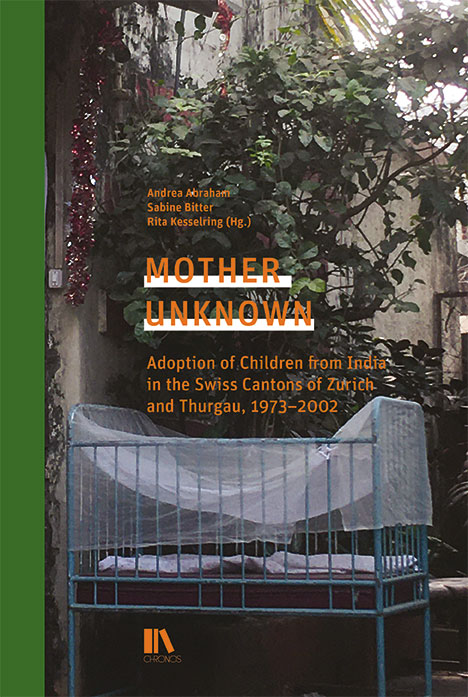Adoption of Children from India in the Swiss Cantons of Zurich and Thurgau, 1973–2002
- Kurztext
- Autor/in
- Downloads
In the last third of the 20th century, Swiss couples adopted more than 2,000 children from India. Using the cantons of Zurich and Thurgau as case studies, the authors show how Indian babies and toddlers were placed in the foster care of Swiss families for subsequent adoption between 1973 and 2002. The volume follows the children‘s journey, starting with their mothers in India, who were mostly unmarried. It sheds light on the circumstances surrounding the conception, birth and relinquishment of the children and their reception in Switzerland against the background of legal practice in intercountry adoptions in their country of origin and the receiving country.
The authors conducted numerous interviews in India and Switzerland with adopted persons, adoptive parents, professionals involved in the process and other experts. With their transnational approach, they open up a hitherto largely unknown chapter in the history of intercountry adoption and provide an insight into a complex network shaped by poverty, social stigma, couples’ family ideals, commercial interests, questionable legal practice and inadequate child protection. This study is the first to analyse extensive material from Swiss archives and adoption files. It shows that when their child was adopted in Switzerland, the Indian mother usually remained unknown and their declaration of consent was lacking.
